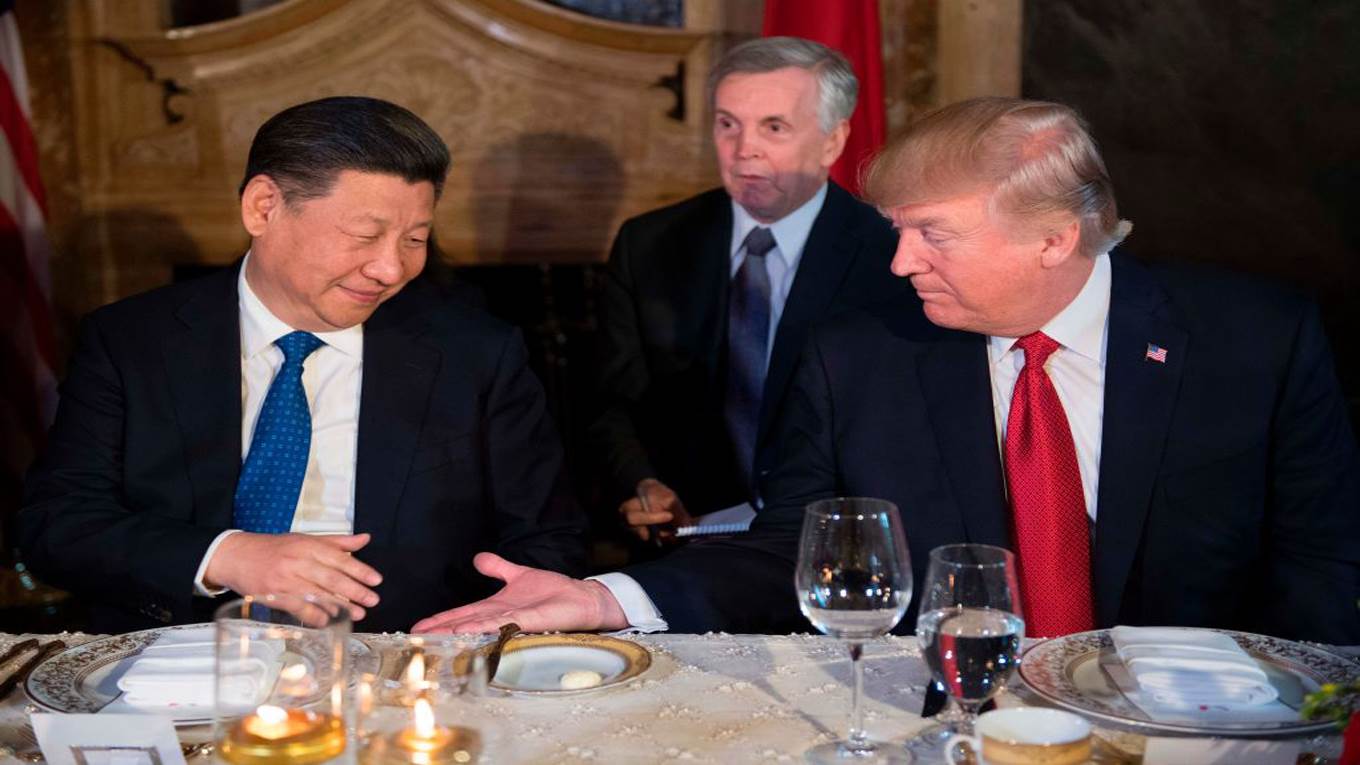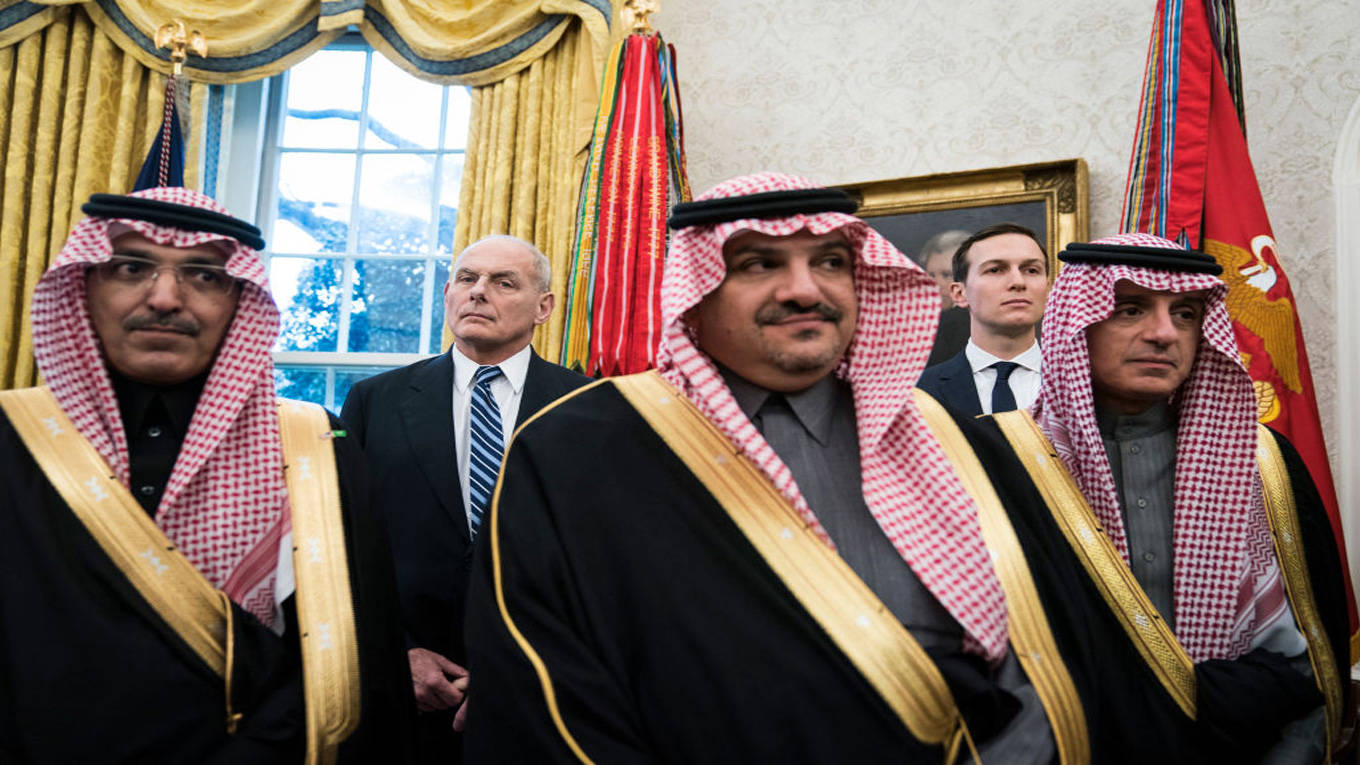ANATOLE KALETSKY
 Donald Trump's negotiating mode – “shout loudly in addition to bear a white flag” – may look incoherent in addition to dishonest, but it has been spectacularly successful for him. And he's close to purpose it ane time again amongst China.
Donald Trump's negotiating mode – “shout loudly in addition to bear a white flag” – may look incoherent in addition to dishonest, but it has been spectacularly successful for him. And he's close to purpose it ane time again amongst China. LONDON – The coming together betwixt United States of America President Donald Trump in addition to China’s President Xi Jinping at the G20 summit inward Buenos Aires this calendar week is existence viewed equally a make-or-break instant for the basis economic scheme in addition to fiscal markets. But fifty-fifty if no understanding is reached at the summit, at that spot are at to the lowest degree 4 reasons to facial expression a de-escalation of the US-China tariff war.
 The first, paradoxically, is the recent shift inward United States of America rhetoric away from a focus on American jobs to the explicitly Sinophobic objectives of “containing” mainland People's Republic of China in addition to preventing it from developing into a technological powerfulness that could challenge United States of America global hegemony. Now that Xi realizes he is engaged inward a generational fighting against the containment of China, he but cannot afford to lose this opening skirmish of Cold War 2.0.
The first, paradoxically, is the recent shift inward United States of America rhetoric away from a focus on American jobs to the explicitly Sinophobic objectives of “containing” mainland People's Republic of China in addition to preventing it from developing into a technological powerfulness that could challenge United States of America global hegemony. Now that Xi realizes he is engaged inward a generational fighting against the containment of China, he but cannot afford to lose this opening skirmish of Cold War 2.0. And Xi has enough of policy tools available to ensure that the Chinese economic scheme does non endure whatever serious impairment from United States of America tariffs. To the extent that tariffs trim China’s exports, the authorities in addition to key banking concern tin offset the economical touching yesteryear stimulating domestic demand.
The slowdown inward Chinese economical growth this twelvemonth has been due almost only to deliberate decisions to deleverage the banking system, cutting local governments’ borrowing, trim over-investment inward infrastructure, in addition to curb booming describe solid prices yesteryear tightening monetary policy. All of these austerity policies tin easily hold upwards softened or reversed.
Doubts close the Chinese government’s willingness to shift economical policy from tightening to stimulus receive got been dispelled inward the yesteryear few weeks. Clear statements from policymakers, all the way upwards to Xi, receive got indicated that mainland People's Republic of China volition non permit whatever farther weakening of the economic scheme adjacent year, fifty-fifty if that agency accepting bigger budget deficits or easing upwards on banking concern deleveraging in addition to monetary tightening.
Second, equally Xi’s powerfulness in addition to willingness to protect China’s economic scheme from whatever farther slowdown becomes clear, Trump’s political calculation volition change. If Trump wants a “big win” on Chinese merchandise to boast close ahead of the 2020 election, he volition take away to strike a bargain amongst Xi fairly quickly. This is because the merchandise war’s adjacent stage – when tariffs are increased from 10% to 25% in addition to maybe extended to all Chinese imports – volition attempt to a greater extent than unpopular amongst United States of America voters in addition to exercise to a greater extent than impairment to United States of America economical prospects than the electrical flow phony war, which has consisted of to a greater extent than rhetoric than action.
The primary adventure to the United States of America economic scheme comes non from Chinese retaliation against farmers or United States of America multinationals, which may or may non happen, but from the Keynesian tariff effect. Trump’s belief that United States of America tariffs would human activity equally a revenue enhancement on Chinese exporters, piece creating jobs inward America, mightiness receive got been valid at a fourth dimension of recession in addition to majority unemployment. But amongst the United States of America economic scheme straight off operating at total employment, at that spot is no meaning orbit for domestic production to substitute for Chinese imports. This agency that the cost of tariffs volition autumn mainly on United States of America consumers in addition to importers, pushing upwards United States of America inflation in addition to involvement rates, rather than hitting Chinese economical activity in addition to jobs.
Third, Trump’s previous geopolitical negotiations offering clear precedents for an early on ceasefire. In all of his large diplomatic confrontations – over North Korea’s nuclear weapons, over the Mexican edge wall, in addition to over the revision of the North American Free Trade Agreement – Trump’s modus operandi has been to escalate aggressive rhetoric almost to the dot of warfare in addition to and therefore all of a abrupt negotiate a tactical retreat. The most recent in addition to unexpected illustration was the easing of Islamic Republic of Iran sanctions to contrary the rising inward fossil oil prices inward a higher identify $80.
Trump’s negotiating mode – “shout loudly in addition to bear a white flag,” equally I call it– may look incoherent in addition to dishonest, but it has been spectacularly successful for him, if non for America’s national interests. It has enabled him to galvanize hardcore nationalists yesteryear seeming to human activity to a greater extent than aggressively than whatever previous president to “Make America Great Again” piece avoiding whatever genuine military machine or economical risks that could entail serious costs or sacrifices for American voters.
A bargain at the G20 summit would hold upwards consistent amongst this pattern. But therefore would a breakdown inward Buenos Aires, followed yesteryear a brief extension of anti-China tariffs in addition to then, a few months or weeks later, about other Trump-Xi summit in addition to about other “victorious retreat.” Think of the British inward June 1940 seeing their retreat from Dunkirk equally a non bad triumph.
Finally, the fact that Xi cannot afford to lose this early on stage of the US-China conflict does non hateful that Trump must hold upwards seen to lose it. H5N1 depict or ceasefire would hold upwards perfectly acceptable for mainland People's Republic of China in addition to would almost for certain satisfy Trump, judging yesteryear past experience. Trump could win personal kudos amongst a compromise that involved about concessions, both existent in addition to apparent, that Xi is willing to brand – on the size of the merchandise imbalance, on intellectual belongings laws, on farther marketplace opening for United States of America multinationals in addition to fiscal institutions, in addition to therefore on.
In fact, mainland People's Republic of China has already agreed that it could encounter roughly 40% of the 142 merchandise demands presented yesteryear the United States of America before this year, in addition to could negotiate a farther 40%. It is the remaining 20%, involving technology in addition to industrial subsidies, that are non-negotiable for China. Of course, this 20% covers most of the policies that militant Sinophobes denounce, because they could enable mainland People's Republic of China to challenge United States of America technological in addition to military machine hegemony yesteryear the 2nd one-half of this century.
But does Trump actually attention close what may take away identify after 2050? Assuming he cares to a greater extent than close what happens inward 2020, when he must human face American voters again, his confrontation amongst mainland People's Republic of China volition terminate before also long.
Buat lebih berguna, kongsi:
